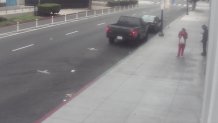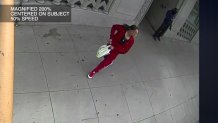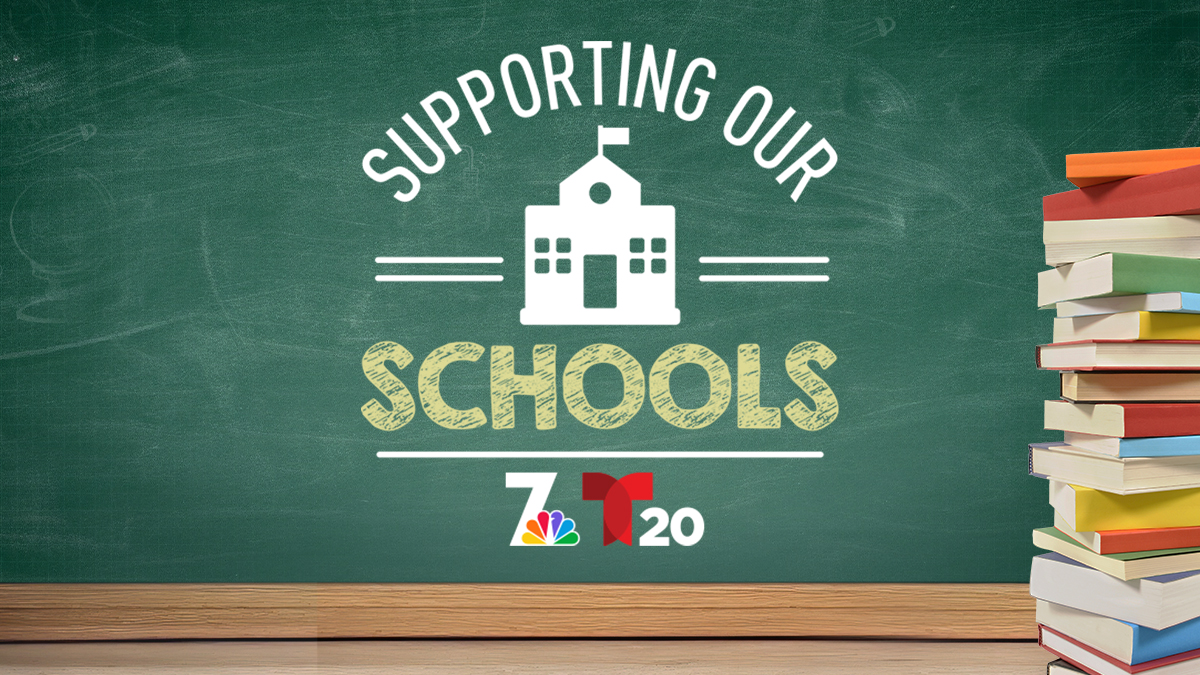NBC 7’s Nicole Gomez shares the latest details in the SDPD shooting of Leonardo Ibarra, including thoughts from his family.
A good father, a loyal friend, and a man who has always felt uneasy about law enforcement is the way the family of a man shot by San Diego police described him as they prayed for his survival.
“He was a good son and a good brother, and he was a good father,” Gabriela Gudino told NBC 7, referring to her ex, Leonardo Ibarra, 25. “I guess everybody in life has their problems, but he always, always was positive about everything in his life.”
“He had that spark,” said Damian Lora, Ibarra’s brother-in-law. “He was a good guy. Honestly, it hurts.”
Ibarra was shot by officers with the San Diego Police Department on June 27 along the 1200 block of Sixth Avenue in downtown San Diego.
Just after 5:45 p.m., Ibarra was walking away down a sidewalk when a pair of officers spotted him. The officers believed he matched the description of a man – including distinctive face tattoos – being sought as a suspect in a June 21 robbery.
According to the SDPD, when the two officers tried to approach Ibarra, he began running away. Ibarra reached into his waistband, pulled out a handgun and pointed it at the officers, the police department said. The officers fired their service weapons, hitting Ibarra, causing him to collapse onto the ground.
The family said Ibarra was shot 11 times, and SDPD investigators said they’re still trying to determine exactly how many times Ibarra was shot.
Local
Ibarra was cuffed and taken to UC San Diego Medical Center where he underwent emergency surgery.
No SDPD officers were hurt in the encounter with Ibarra. The SDPD said the item Ibarra pointed at the officers was a loaded revolver wrapped in a bandana.
On Sunday, a group of Ibarra’s family and friends stood outside the hospital, praying he would survive.
The family told NBC 7 Ibarra – a father of three children ages 4, 6, and 8 – was brain dead and it didn’t look like he would make it. They had started talking about him in the past tense, preparing themselves for the worst.
On Monday, Ibarra's aunt told NBC 7 his condition had not improved and they had little hope that he would survive.
Gudino, who is the mother of two of Ibarra’s children, said it’s devastating to think about his kids being left without a father.
“It’s sad that they won’t ever be able to have that experience with him ever again,” she said.
Gudino described Ibarra as a respectful and playful family man who loved his kids. She also said he had a lot of friends and “a lot of people who loved him
“He always laughed and smiled, and he just made everyone around him happy,” Gudino said.
She and Lora said that despite Ibarra pulling out a gun during his encounter with police, he did not deserve to be shot by the officers.
“It was excessive force,” Gudino said. “That was just too many times. Nobody deserves that.”
That was just too many times. Nobody deserves that.
Gabriela Gudino, Mother of two of Leonardo Ibarra's children
Gudino and Lora said Ibarra was shot on his body and suffered a wound to his head.
“Regardless, you are who you are, and you shouldn’t get killed that way, like 11 times,” Lora told NBC 7. “I get it, one, two – but 11 times? I think that’s not right. Even if he pulled out a gun, there are other ways to try to stop him.”

Lora said he can’t understand why police would aim at Ibarra’s head.
“That’s ridiculous. Shooting someone in the head?” he said. “I understand that cops feel threatened sometimes – but they need to stop. Eleven times; I just can’t get that through my head. We’re all human beings, you know?”
Ibarra’s friends and family said they know he will be publicly judged for pointing a gun at the officers, but Lora added, “They really don’t know him like we do.”
Gudino and Lora believe Ibarra was scared and didn’t think straight when he pointed the gun at police because he has always felt uneasy about law enforcement.
“He would tell me that he was scared of cops because they would look at him as if he was a criminal just because of his tattoos, his way of being,” Lora explained. “He’s scared of cops.”
SDPD Releases 4 Videos of Ibarra's Shooting
Less than 24 hours after shooting Ibarra, the police department released four videos of the encounter between him and officers. The clips showed the seconds leading up to the gunfire.
One video was recorded on a smart streetlight camera. When it was slowed down and magnified by police, it showed a closer view of Ibarra. The SDPD said Ibarra can be seen pointing a gun at one of the two officers.
“The officers had no other response other than to use deadly force,” said Capt. Rich Freedman of the SDPD Homicide Unit.
The videos included footage from a security camera and two body-worn cameras belonging to the officers involved in the incident. Police also released a still image of the gun, wrapped in a camouflage bandana, that was found next to Ibarra.
"It is not known at this time if the man fired at the officers," Freedman said.
The interaction between Ibarra and police lasts about 20 seconds from the moment Ibarra stepped out of the entryway of a building and onto the sidewalk, to the moment he was shot.

The body-worn camera on the officer in the passenger seat is silent for the first two minutes as the officers are seen driving in downtown San Diego.
In the video, the officer exits the vehicle and says to Ibarra, "Hey man, let me talk to you for a second. Stop. Stop."
While the officer begins approaching him, Ibarra walks away and the officer says, "Stop, let me see your hands."
Police said that as Ibarra was walking, he dropped a bag of items he had been carrying and began to reach into his waistband. He then turned toward one of the officers and pointed a gun at the officer, SDPD Lt. Matt Dobbs said.

Moments later, multiple shots are fired and Ibarra drops to the ground. Both officers shot at him, hitting him at least once, police said.
Body-worn camera footage from the officer driving shows the officer exit the car and approach Ibarra from the street. Once the officer gets out of his car, he runs parallel to Ibarra separated by two black vehicles.
“Let me see your hands,” the officer shouts.
Police said Ibarra pointed a gun at the officer and that's when police fired multiple shots.
“Shots fired, shots fired. 530 B street,” the officer says over his radio while approaching Ibarra. “San Diego Police, let me see your hands."
The officers reach Ibarra and handcuff him before performing CPR. A camouflage bandana is shown sitting next to Ibarra's right hand.
The video then shows a couple still images from the security camera and body-worn camera videos where police detail how Ibarra drops his items, reaches into his waistband and then points the reported revolver at an officer.

The SDPD Homicide Unit and the FBI are investigating the police shooting of Ibarra.
The case will be reviewed by the San Diego County District Attorney's Office to determine if the officers bear any criminal liability for their actions. The Community Review Board on Police Practices will also conduct a review of the incident and provide any appropriate recommendations, according to the department.
The officers involved will be placed on administrative leave during the investigation. Their names are not being released at this time, Freedman said.
The shooting of Ibarra happened just days after SDPD Police Chief David Nisleit and San Diego Mayor Kevin Faulconer announced the implementation of two police policy changes, including deescalating the use-of-force and officer intervention in use-of-force incidents.
The deescalation policy requires officers, when reasonable, to use techniques that can resolve situations either through lower levels of force -- or no force at all.
Cameron Gary, a retired San Diego County law enforcement officer, told NBC 7 last week that more can be done when it comes to police reform, specifically the changing of the police culture.

The police shooting of Ibarra sparked a protest at Sixth Avenue and B Street Sunday. About 100 people gathered there, demanding answers from the police as well as the release of the videos.
“I don't think we've seen him point a gun at them,” protestor Michelle Cohn said. “We've seen maybe he had a gun wrapped up in something.”
A GoFundMe page was created to help Ibarra's family cover funeral expenses and support his children's future education.



